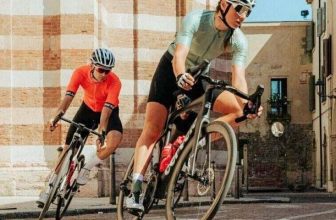
As a child, when I was asked about what I wanted to be when I grew up, I said either a visual artist or a magician. I was curious about how things could appear different than what they actually were. For example, making an object look realistic with pencil and paper, or letting an audience member believe that they had control of a deck of cards when I was really just forcing a card on them.
From then on I gained an interest in learning and studying people’s behaviour and why they make the decisions that they do. Follow on to find what influenced me on My Personal Journey into Psychology and Behavioural Economics!
A Kind of Magic…
Growing up I invested a lot into learning how to perform magic tricks. I loved card tricks because there were many that didn’t require gimmicks or any preparation in advance. I spent hours and hours watching videos and tried to guess how the tricks were done before watching the tutorials. My nana made me a cape for my performances, I made the tickets and the evening programmes, and charged my family to see them.
Several years later after I had given up performing and was considering going into engineering I received a book for Christmas called Sleights of Mind: What the Neuroscience of Magic Reveals About Our Everyday Deceptions by Stephen Macknik and Susana Martinez-Conde.
It not only described how a sample of magic tricks were done, but it explained how concepts in psychology and brain mechanisms allow us to be fooled over and over. Watch the video below to see how magicians can use attention and distraction to perform various tricks.
Reading about neuromagic reminded me of my interest in studying how the mind worked, which convinced me to study cognitive science at university. The programme consisted of courses from several disciplines including psychology, neuroscience, philosophy, linguistics, and computer science.
Figuring out How the Mind Works…
The first time I heard the term Behavioural Economics was in a cognitive science class that I took as an elective in my first year of university. The lecture focused on the application of cognitive science in the real world and briefly touched on consumer behaviour.
Two years later, I had the chance to conduct some research of my own. Due to the pandemic and the increase in online shopping, I was curious to see whether changes in certain surface features of a product would impact shoppers’ purchasing habits and decisions since they no longer had the luxury of physically going into stores to check out products before purchasing them.
After the enjoyment I gained from that project I was eager to learn more about research conducted in the psychology of behavioural economics and consumer behaviour.
Dan Ariely’s Book, “Predictably Irrational” & Fun Experiments
One of the first books I read on behavioural economics was Dan Ariely’s Predictably Irrational. It explained why people don’t make the best decisions despite simple logical explanations and how implementing small changes could drastically influence people’s choices.
The book included several fun experiments that were easy to follow along with and, as a reader, I could do some of them myself and predict the results. To learn more about decision-making and Dan Ariely’s book, check out his TED Talk above.
To decide whether behavioural economics was the area of research I wanted to pursue further, I gained some experience as a research intern with a marketing research agency. There were a variety of projects on the go in several markets such as banking, entertainment, retail, education, and health, just to name a few, which was a great learning opportunity.
Getting a taste of the qualitative side of research and learning about human behaviour and decision-making first-hand was refreshing since I was used to doing analyses of cortisol levels in mice at university.
Learning the Art of Business Influence
After spending a lot of time looking at participant data and listening to their interviews on various products from chia seeds to fax machines, I was still interested in learning more about what businesses could do to improve their products and influence their consumers.
I enjoyed reading Hooked: How to Build Habit-Forming Products by Nir Eyal because it put a positive spin on habit-forming and encouraged readers to follow the steps in the book to design their own products.
Importantly, the book gets the reader to consider their intentions when developing a product in the section on morals and manipulation. In the video above, Nir Eyal explains why certain technologies are habit-forming.
Although my endeavour to study human behaviour and psychology hasn’t changed from when I was a child, it’s my curiosity and willingness to learn new things that have allowed me to realise my many different interests within human behaviour.
Developing an interdisciplinary background over several years has enabled me to see the world from different perspectives, which I hope to continue building on during graduate school and my future career. I’ve learned that it’s important to keep an open mind and to start observing the little things that surround you every day because it might spark an area of interest that you hadn’t thought of before.
Keep questioning and thinking, it’s a great way to strengthen your mental health! What subjects stimulate your mind and tickle your brain? Let us know in the comments below, and join in the conversation on Facebook, Twitter & Instagram!









